'Guns and survivalists, but no school until I was 17'
- Published
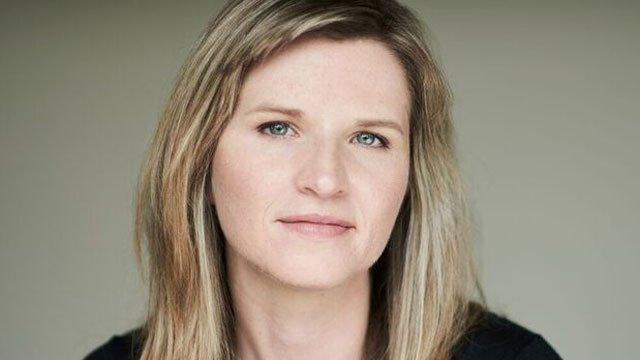
Tara Westover secretly bought the textbooks that she needed to pass tests for university
There can't be many people with a doctorate from the University of Cambridge who never got a single school-age qualification.
But Tara Westover's story is more like something from another era, than a tale of modern America.
Tara grew up in rural Idaho, in a family of survivalists who saw schools as part of a government brainwashing exercise to be avoided at all costs.
Her obsessively independent father stockpiled guns and supplies, ready for the end of civilisation and to guard against any attempt by the state to intervene in their lives.
Even when they were hurt in serious car accidents, the family avoided hospitals, seeing doctors as agents of a malign state.
This was also a deeply controlling way of life, with the family's fundamentalist interpretation of Mormonism setting rules on what Tara could wear, her hobbies and her contacts with the outside world.
'Thought they were brainwashed'
It was a tough, violent, self-reliant life, like a paranoid Little House on the Prairie.
Tara remembers her father, fearful of raids by federal agents, buying weapons powerful enough to bring down a helicopter.
It meant that she had a childhood of riding horses in the mountain and working in a scrapyard, but not any school. She says that claims for home schooling were really a cover for "no schooling".
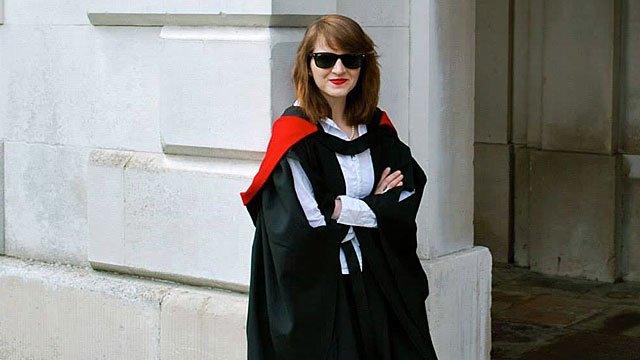
Tara had no formal education in her childhood, but went on to get a PhD from Cambridge
At the time it didn't seem strange that they didn't go to school like other local children, she says.
"I thought they were wrong and we were right. I thought they were spiritually and morally inferior because they went, I really did," Tara says, speaking in Cambridge where she now lives.
"I thought they were being brainwashed and I wasn't."
Tara, now aged 31, has written an account of her childhood, called Educated, which is being published this month.
Much of this was a self-education, because the first time she came into contact with formal lessons was when she started college at the age of 17.
She had been taught to read and write by her mother and brother, but had never learned anything about history, geography, literature or the outside world.
Teach yourself
Access to books was limited to a few titles that fitted with her family's fundamentalist worldview, and she worked from an early age.
But she had been brought up with a ferocious belief in the capacity for anyone to learn anything if they put their mind to it.
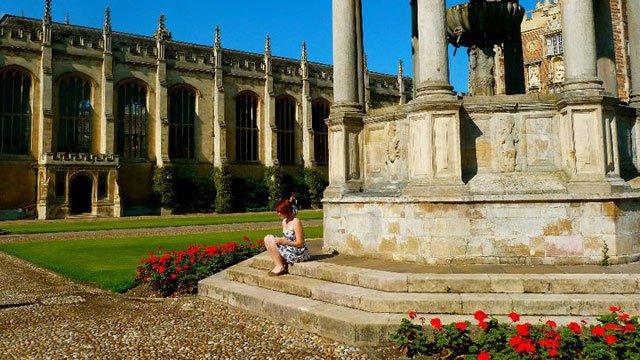
Tara's success as a student brought her from rural Idaho to study in Cambridge
"My parents would say to me: 'You can teach yourself anything better than someone else can teach it to you.' That was the whole ethos of my family," she says.
Wanting a way out of a narrow and emotionally claustrophobic family life, she found a university that would admit her if she passed an entrance test.
She secretly bought the textbooks she needed and methodically studied, night after night, until she got the grades she needed.
But when she arrived in her new class in 2003, aged 17, she says she was in a "state of perpetual fear".
"I was like a woodland animal. I was just in a panic, terrified the whole time. I thought I was going to be asked to do something and I wouldn't know what it was.
"Everything about the classroom was terrifying, because I'd never been in one before."
'Not a conveyor belt'
There were huge gaps in her knowledge. She was shocked to hear about the Holocaust for the first time in a history lesson.
Her only previous knowledge of slavery had been in a book, in which she says, it had been presented as a benevolent experience, which was harder for the slave owners.
After a disastrous start, she set her mind to her studies and proved a highly capable student.
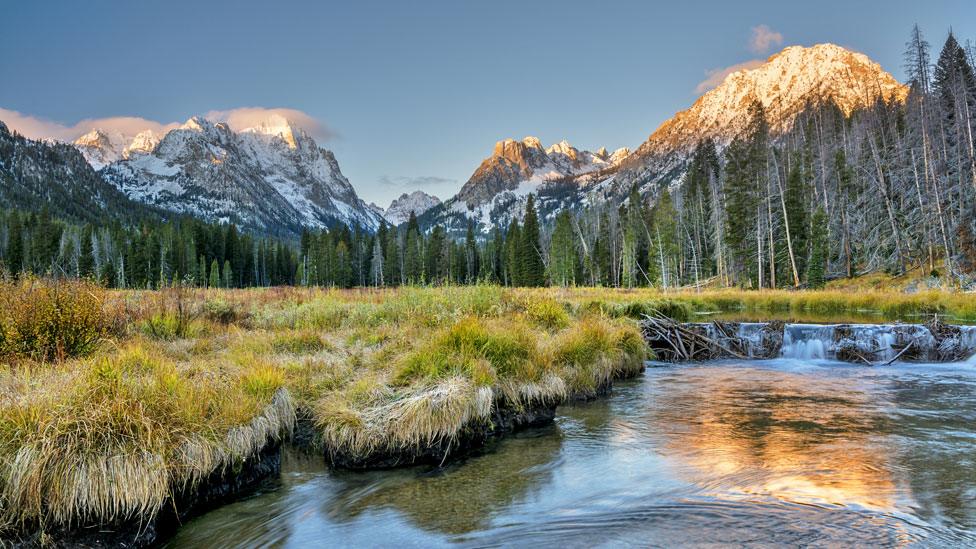
Tara says she has a sense of loss for the rural Idaho she left behind
So much so that she got a chance to spend time at Harvard and then to get to study abroad at the University of Cambridge.
Here she became a Gates Scholar, with funding from the Gates Foundation, and studied for a PhD, becoming Dr Westover at the age of 27 in 2014, without ever having graduated from high school.
Her subject was utopian communities set up in the 19th Century.
Tara's journey has given her an unorthodox insight into how education works.
She says her own upbringing was too much of an extreme alternative, but she has doubts about the mainstream experience.
"The biggest worry is that it sounds like such a passive, sterile process. A conveyor belt you stand on and you come out educated.
"I think a lot of people have grown up with the idea that they can't learn things themselves. They think they need an institution to provide them with knowledge and teach them how to do things. I couldn't disagree more," she says.
Estranged
If she had children, she says she wouldn't send them to school when they were five. "They might think education is sitting quietly."
She is estranged from her parents and her religion - and says pulling down her old beliefs has been a traumatic experience.
But she is not an uncritical convert to her new life and her experience of university.
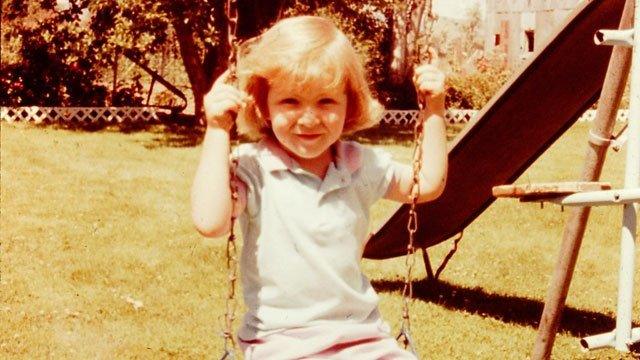
Tara has written a memoir of her unusual childhood
Tara says there is less tolerance of different opinions within middle-class, liberal academic circles than there ever was among the strict fundamentalists of her childhood.
She says she might have rejected the extreme anti-government politics, but she says from the perspective of rural Idaho it made some sense.
For such isolated, rural communities, she says the federal government seemed like an alien and "wildly ineffective" force.
In her accounts of her upbringing, you can hear the strands of some of the ideas that fed into President Trump's election campaign.
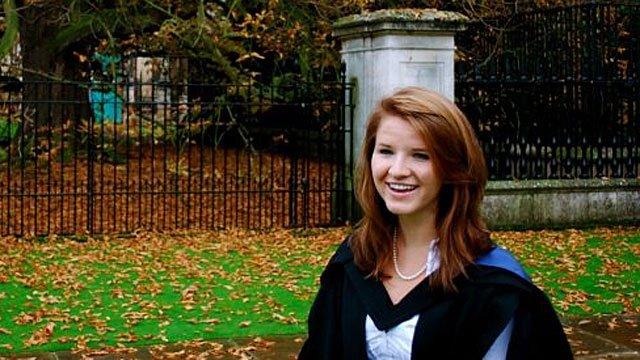
A decade after Tara began her first classes, without any qualifications, she was awarded her doctorate
But Tara says her childhood memories, including her descriptions of her brother's violence, do not have a "nice neat ending like in the movies".
"You can miss someone every day and still be glad you don't have to see them," she says.
The most difficult things to write about were not about the fights with her family and the restrictions.
"It was hardest to write about the good things, the things I had lost. The sound of my mother's laugh, how beautiful the mountain was.
"It's like attending someone's wedding when you're still in love with them."
Educated by Tara Westover will be published by Hutchinson on 22 February.

More from Global education
Ideas for the Global education series? Get in touch with sean.coughlan@bbc.co.uk
